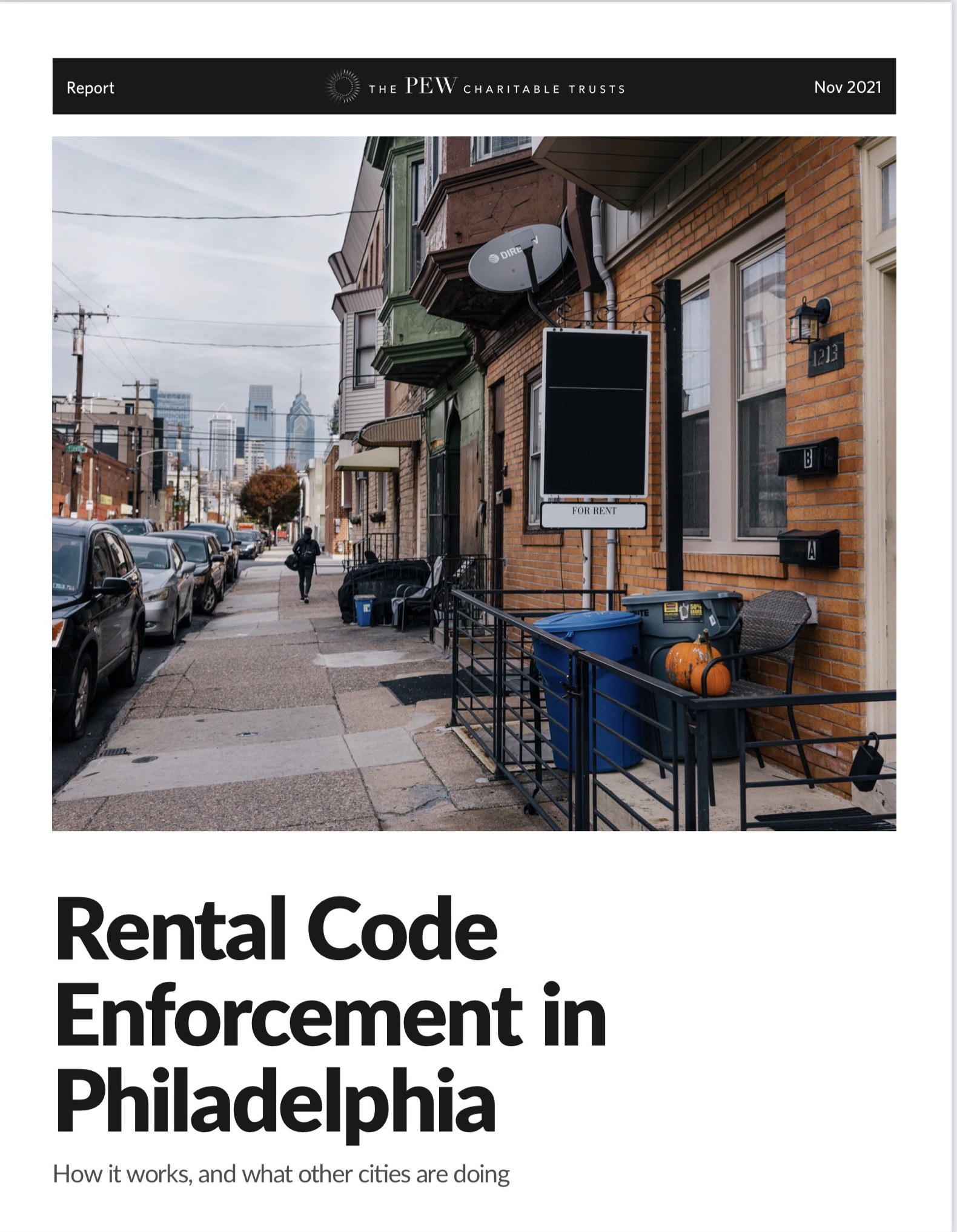To determine how Philadelphia’s current system is addressing the quality of rental housing, particularly in low-income neighborhoods, this report provides an in-depth examination of the rental regulation system in the city—and the corresponding systems in other major cities. The research found that Philadelphia’s regulatory approach is less comprehensive than those in some other places. For example, unlike some other cities, Philadelphia has no program for regularly inspecting rental properties. Instead, it makes physical examinations only in response to formal complaints. As a result, only about 7% of the city’s rental units get inspected each year. In addition while landlords are required to obtain a rental license to lease properties, about 45% of rental properties, representing 30% of Philadelphia’s rental units, were unlicensed in 2020. To put Philadelphia’s laws, policies, and practices in perspective, the report examines nine other cities with similar rental housing stocks in terms of size, nature, and/or age: Baltimore, Chicago, Cleveland, Detroit, Milwaukee, New York, San Diego, San Francisco, and Washington. Pew found that these cities and others have sought ways to strengthen registration requirements, leverage the data they collect, streamline operations, and address poor conditions in rental properties without causing tenant displacement.
